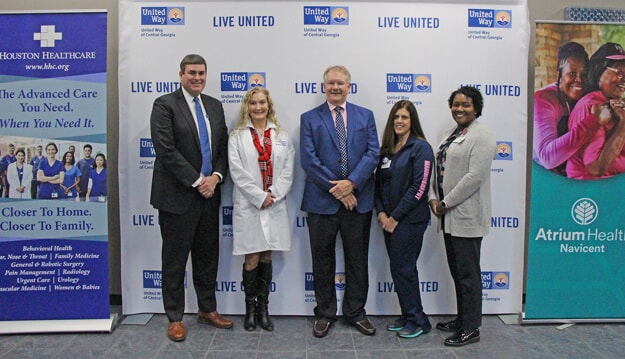Houston Healthcare – Warner Robins and Houston Healthcare – Perry Receive DNV Healthcare’s Certification for Stroke Care
- Posted On:
Houston Healthcare has received certifications from DNV Healthcare - for Houston Healthcare – Warner Robins as a Primary Stroke Center, and also Houston Healthcare – Perry as an Acute Stroke Ready Center - affirming the organization’s readiness to handle a full range of stroke-related medical problems.
“These certifications let our community know we have the resources and commitment to provide the best possible stroke care,” says Kevin Rowley, Public Information Officer for Houston Healthcare. “It’s a combination of the right equipment, personnel and training to quickly assess and treat strokes. This includes the ability to efficiently transfer patients in the rare instances they require treatment beyond our capabilities Achieving certification validates all the effort we have put into this program and to ensuring the health and safety of our patients.”
The DNV Healthcare Primary Stroke Center (PSC) Certification that Houston Healthcare – Warner Robins earned is based on standards set forth by the Brain Attack Coalition and the American Stroke Association and affirms that the hospital addresses the full spectrum of stroke care – diagnosis, treatment, rehabilitation and education – and establishes clear metrics to evaluate outcomes.
The DNV Healthcare Acute Stroke Ready (ASR) Certification that Houston Healthcare – Perry earned is derived from evidenced-based standards set forth by the Brain Attack Coalition and the American Stroke Association, and affirms that Houston Healthcare – Perry addresses the initial diagnosis, initial treatment and when necessary, facilitates quick transfer to a specialized Stroke Center with a higher spectrum of stroke care.
“Achieving certification shows commitment to excellence,” says Patrick Horine, President of DNV Healthcare USA Inc. “And it helps demonstrate to your community that you are performing at the highest level.”
According to the National Stroke Association, stroke is a leading cause of death, killing nearly 130,000 people each year, and is a leading cause of serious, long-term adult disability. Because stroke or “brain attack” effects blood flow to the brain, rapid and effective treatment can save lives and provide the best chance of limiting the extent of long-term damage.



